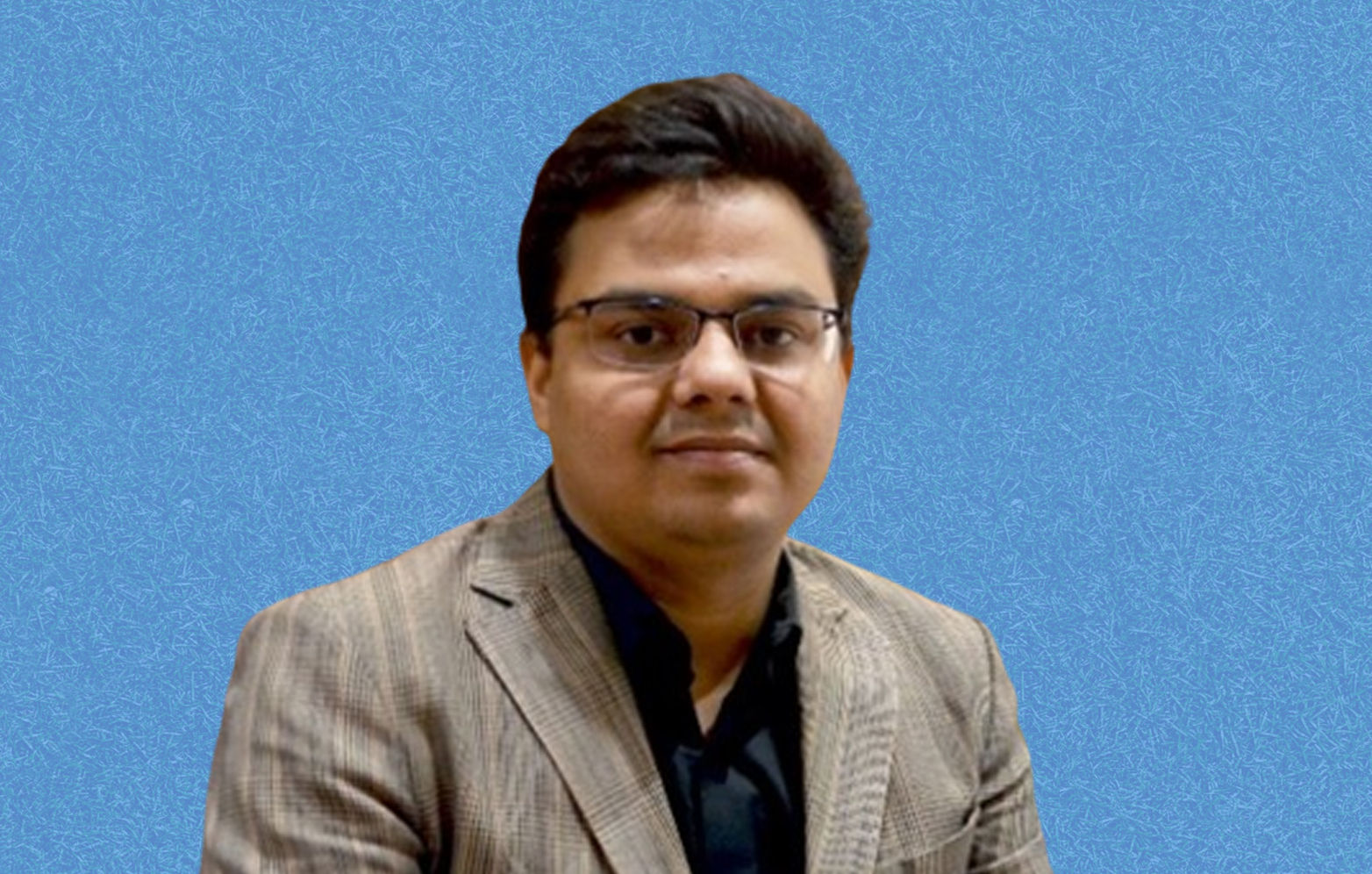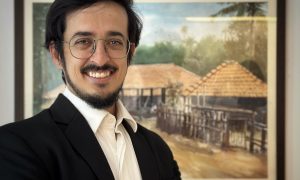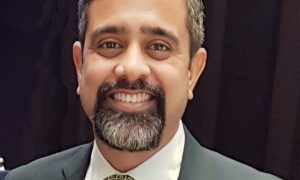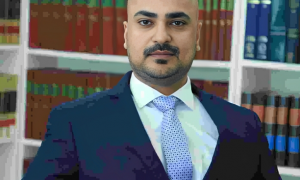This interview has been published by Anshi Mudgal and The SuperLawyer Team
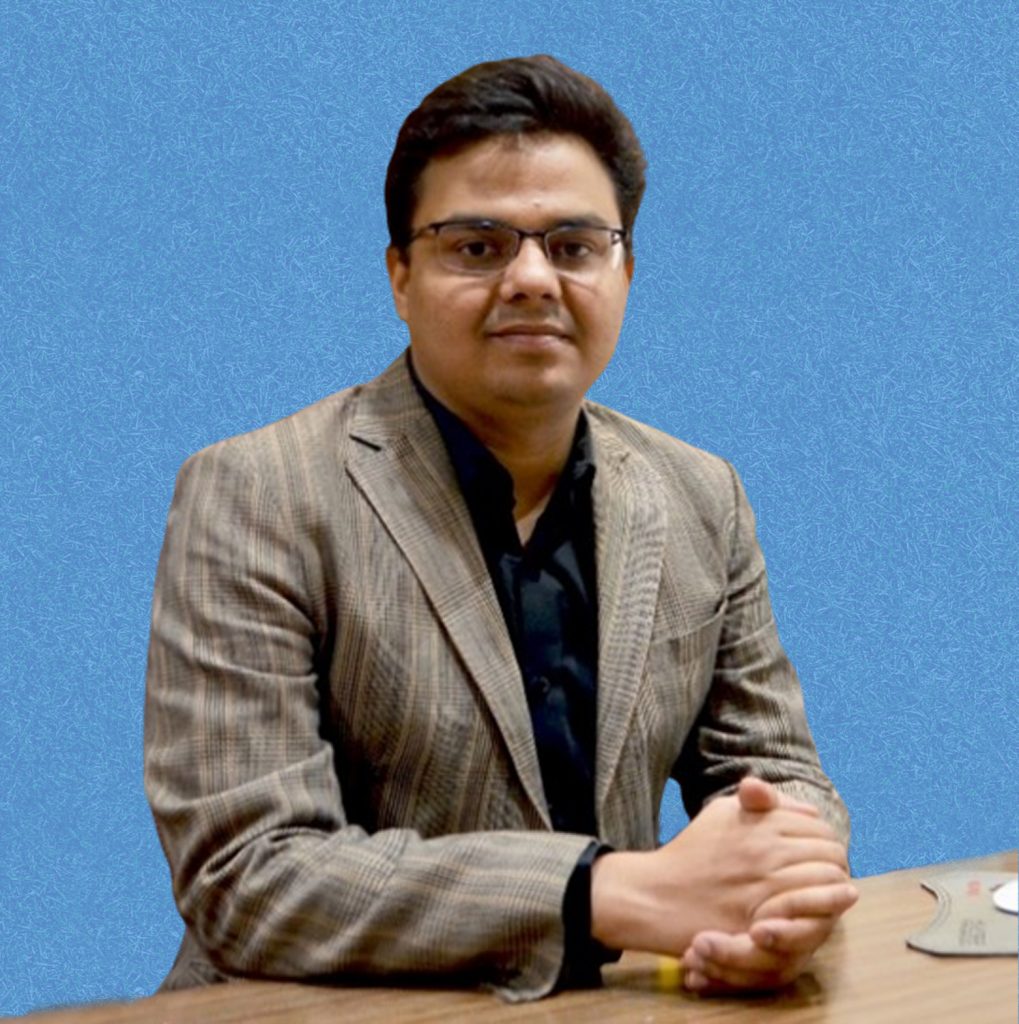
As one of the youngest and most innovative minds in your firm, looking back, do you feel that law was always your intended career path, or was there a particular experience or influence that steered you toward this profession?
Looking back, I feel that law was always destined to be a part of my journey. As a fourth-generation lawyer, I was immersed in an environment where discussions about justice, strategy, and advocacy were part of daily life. While my parents never pressured me to pursue this path, the legacy of law within my family naturally drew me in.
My grandfather deeply inspired me, Mr. Krishna Gopal Bansal, and my father, Mr. Shravan Kumar Bansal, whose unwavering commitment to justice and innovation left a lasting impression on me.
Accompanying them to their office as a child, I was captivated by their meticulous approach to every case and the respect they garnered from peers and clients alike. These experiences shaped my understanding of the legal profession as more than just resolving disputes; it’s about shaping lives, empowering communities, and upholding justice.
This profound sense of purpose motivated me to embrace the profession wholeheartedly. Today, as one of the younger members of my firm, I strive to honor this legacy while bringing a fresh, innovative perspective to an evolving field. My goal is to bridge the richness of tradition with the dynamism of modern legal practice, creating a meaningful impact for those I serve.
What initially drew you to Intellectual Property Law, and what motivated you to pursue an LL.M. (Pro.) in this area? How has your specialization in IP law contributed to your professional growth and success?
My interest in Intellectual Property (IP) Law was rooted in both family legacy and a personal fascination with the intersection of creativity, innovation, and legal protection. My great-great-grandfather once advised my grandfather to delve into IP law, planting the seeds for what has become a multi-generational practice in our family. Growing up in this environment, I witnessed how IP law empowers creators, safeguards innovation, and fuels economic progress, sparking my own curiosity and passion for this field.
Pursuing an LL.M. (Pro.) in Intellectual Property Law was a natural step in deepening my expertise. The program offered me a comprehensive understanding of the intricate frameworks governing IP law, from international treaties to emerging trends and strategic enforcement mechanisms. It also broadened my perspective, exposing me to global practices and equipping me with the tools to address the complex challenges of a rapidly evolving domain.
Specializing in IP law has been a cornerstone of my professional growth. It has allowed me to collaborate with innovators, businesses, and creators, helping them protect their ideas and transform them into impactful realities. This focus has not only strengthened my legal acumen but has also enabled me to carve a unique niche in a competitive legal landscape. It continues to offer diverse opportunities to contribute meaningfully to the intersection of law, creativity, and innovation.
With your extensive experience handling IP-related matters, could you share your journey from Trainee Associate to Managing Associate? How have your roles evolved over time at United & United, and what key lessons from your early years have had the most lasting impact on you today?
My journey from Trainee Associate to Managing Associate at United & United has been enriching and transformative. As a Trainee Associate, I was introduced to the foundational aspects of intellectual property law—conducting meticulous research, drafting applications, and assisting in litigation. Those early years were instrumental in shaping my understanding of the field and building a strong work ethic.
As I progressed, my responsibilities evolved significantly. As an Associate, I began managing cases independently, engaging directly with clients, and devising strategies to address complex IP matters.
Transitioning to a Senior Associate role further broadened my perspective as I took on mentoring responsibilities and played a more active role in developing firm-wide strategies.
As a Managing Associate, I oversee teams, handle high-stakes IP portfolios, and contribute to the firm’s vision of fostering innovation and excellence. Each role has brought new challenges and opportunities for growth, allowing me to refine my skills and leadership abilities.
The key lessons from my early years have left an indelible impact. I carry everyday principles such as attention to detail, clear communication, and continuous learning. Most importantly, I’ve learned that building strong relationships—with clients, colleagues, and industry stakeholders—is the cornerstone of long-term success in the legal profession.
Having represented leading brands in trademark and design matters, how do you adapt your legal strategies for clients across diverse industries? What unique challenges do you face when protecting trademarks for fashion and consumer goods brands specifically?
Representing leading brands across diverse industries requires a deep understanding of not only the law but also the unique market dynamics and creative nuances of each sector. My approach involves tailoring legal strategies to align with the client’s business goals, market position, and competitive landscape. By immersing myself in the specific industry’s trends, challenges, and consumer behaviour,
I can craft solutions that resonate with the brand’s identity and long-term vision. When it comes to fashion and consumer goods brands, the challenges are particularly distinct. These industries thrive on creativity, rapid trends, and high consumer engagement, which make their trademarks and designs both highly valuable and vulnerable. Protecting trademarks in these sectors often involves addressing issues like counterfeit goods, fast-paced design replication, and maintaining exclusivity in a saturated market.
Additionally, fashion and consumer goods brands frequently operate on a global scale, requiring vigilance against cross-border infringement and navigating varying legal frameworks in different jurisdictions. The challenge lies in ensuring comprehensive protection while enabling the brand to evolve and expand without unnecessary legal constraints.
To address these challenges, I focus on proactive measures such as securing robust IP portfolios, continuous monitoring for potential infringements, and leveraging technology-driven tools for enforcement. I also prioritize fostering strong client collaboration, ensuring that my legal strategies not only protect their rights but also enhance their market presence and brand equity. Ultimately, my goal is to help clients thrive in their respective industries by ensuring their creative assets are safeguarded and strategically positioned for sustained success.
Your expertise in international trademark law is highly regarded. What challenges do you face when securing global brand protection for clients, and how do you manage cross-border trademark disputes or registrations? Can you share a particularly challenging case that tested your skills in this area?
Securing global brand protection involves navigating a complex web of legal frameworks, cultural nuances, and market-specific challenges. Each jurisdiction has its own set of laws, procedures, and timelines, requiring a tailored approach to ensure effective trademark registration and enforcement. One of the primary challenges lies in harmonizing these diverse legal standards while maintaining consistency in brand identity and protection strategies.
Cross-border trademark disputes further amplify the complexity. Issues such as conflicting trademark rights, bad-faith registrations, and parallel imports often arise, particularly in regions where trademark squatting is prevalent. Managing such disputes requires a combination of strategic foresight, meticulous research, and collaboration with local counsel to ensure compliance with jurisdiction-specific rules while aligning with the client’s global objectives. One particularly challenging case that tested my skills involved securing a global trademark for a tech company launching an innovative product line. The brand name faced conflicting registrations in multiple key markets, including the U.S., Europe, and parts of Asia, where trademark squatters had preemptively filed for similar marks.
The case required not only legal acumen but also diplomatic negotiation skills to resolve disputes amicably and cost-effectively. In some jurisdictions, we pursued opposition proceedings and cancellation actions, leveraging evidence of bad faith and non-use. In others, we negotiated coexistence agreements to establish boundaries for trademark usage while protecting our client’s interests. Meanwhile, we implemented a robust monitoring system to prevent future infringements and bad-faith filings. This case underscored the importance of proactive planning, thorough due diligence, and creative problem-solving.
By strategically combining legal action with negotiation, we successfully secured the brand’s global footprint, enabling the client to launch their product line seamlessly. Ultimately, challenges in international trademark law demand a balance of legal expertise, strategic adaptability, and cultural sensitivity. My experience in this field has honed my ability to address these complexities while ensuring clients’ brands are well-positioned to thrive in the global marketplace.
Given that IP law is constantly evolving, how do you see the Indian legal landscape adapting to global changes? What is your opinion on the effectiveness of initiatives like the AI and ML-based Trademark Search Technology and IP Saarthi launched by the CGPTM and DPIIT?
Intellectual Property law is inherently dynamic, evolving in response to technological advancements, global trade practices, and the increasing significance of intangible assets. As a rapidly growing economy and innovation hub, India is adapting well to these global changes by modernizing its IP framework and aligning with international best practices.
Initiatives like the AI and ML-based Trademark Search Technology and IP Saarthi, launched by the CGPTM and DPIIT, are commendable steps toward enhancing the efficiency and accessibility of the Indian IP system. For instance, the AI and ML-based Trademark Search Technology has significantly streamlined the trademark registration process, reducing the time and effort required for preliminary searches. It reflects a forward-looking approach, leveraging technology to address challenges like backlog and accuracy in trademark examinations.
IP Saarthi, aimed at creating awareness and guiding stakeholders, can bridge the gap between innovators and the IP system, particularly benefiting startups and small businesses. It underscores the government’s commitment to fostering an IP-friendly environment by empowering creators with knowledge and resources.
While these initiatives are promising, their effectiveness will depend on consistent updates, widespread adoption, and adequate stakeholder training. The continued integration of advanced technologies and robust policy frameworks will ensure India remains competitive globally. As someone deeply invested in this field, I am optimistic about the transformative potential of these initiatives and look forward to seeing their long-term impact on the Indian IP landscape.”
In addition to your legal practice, you contribute to the legal community through seminars, publications, and mentoring. How do you view the role of legal education in advancing trademark law, and what advice would you give to young lawyers who want to specialize in this field? Can you also share some resources that students can refer to for staying updates on the latest legal trends in IP?
I firmly believe in the transformative power of knowledge, particularly in advancing trademark law and strengthening the intellectual property (IP) ecosystem. Education plays a crucial role not only in shaping the next generation of IP professionals but also in empowering key stakeholders to safeguard the rights of creators and businesses effectively. To that end, my team and I actively organize seminars, webinars, and training sessions, particularly for customs authorities and police personnel. By equipping them with a thorough understanding of IP law, we enable them to play a vital role in enforcing brand protection and combating counterfeiting. These efforts help ensure that government authorities are well-prepared to uphold the rights of brand owners. Equally important is our engagement with students and young lawyers who are eager to specialize in intellectual property law. Through mentorship programs, guest lectures, and interactive workshops, we aim to inspire and guide them to explore the immense opportunities within the IP sector. This field is not only a cornerstone of innovation and creativity but also a driver of economic growth in an increasingly knowledge-based global economy.
To young lawyers aspiring to specialize in trademark law, my advice is threefold:
- Develop a Solid Foundation: Master the basics of IP law, including trademarks, patents, copyrights, and designs, as well as the intricacies of jurisdiction-specific regulations.
- Stay Curious and Updated: IP law is constantly evolving due to technological advancements and globalization. Stay informed about new legal precedents, international treaties, and emerging trends in industries like AI, fashion, and technology.
- Cultivate Practical Skills: Beyond academic knowledge, focus on skills like negotiation, litigation, and client management, which are crucial in real-world practice.
For students seeking resources to stay updated, I recommend:
- WIPO (World Intellectual Property Organization): A treasure trove of international IP resources, reports, and case studies.
- IP Blogs and Journals: Resources like SpicyIP, LiveLaw, barandbench and Manupatra are a great source of IP Blogs, case studies and latest news.
- Professional Networks: Engaging with IP-focused organizations like INTA (International Trademark Association) or participating in IP-related conferences is invaluable for networking and learning.
- Books: Fostering the habit of regularly reading case laws, bare acts, and staying updated with the latest news is essential for delving deeper into the field of IP law.
By fostering knowledge at all levels—whether among government authorities, businesses, or students—I aim to contribute to a stronger and more secure IP ecosystem where brands, innovation, and creativity can flourish.
As the Managing Associate at your firm, you likely have significant responsibilities. How do you maintain a steady workflow while also balancing personal commitments and obligations?
As the Managing Associate at my firm, maintaining a steady workflow while balancing personal commitments requires a combination of organization, discipline, and clear prioritization. The key to managing both professional and personal obligations lies in setting realistic expectations and creating structured routines. In my professional role, I rely on effective time management tools and techniques, such as setting clear daily goals, prioritizing tasks based on urgency, and delegating where possible. This allows me to stay on top of deadlines, manage client expectations, and contribute to the growth of the firm. However, I also understand the importance of personal time for overall well-being and productivity.
I ensure that I set boundaries by dedicating time for personal commitments, whether it’s spending time with family, pursuing hobbies, or maintaining a healthy lifestyle. I’ve learned that balance doesn’t come from overloading one aspect of my life but by managing them in harmony. Maintaining this equilibrium also requires flexibility; there are days when work demands more time, and other days when personal priorities take precedence. What’s most important is remaining adaptable and staying grounded in both my professional goals and personal values. Ultimately, by fostering a disciplined approach to work and committing to self-care, I’ve found a rhythm that supports both my professional aspirations and personal happiness.
Get in touch with Rishi Bansal –

